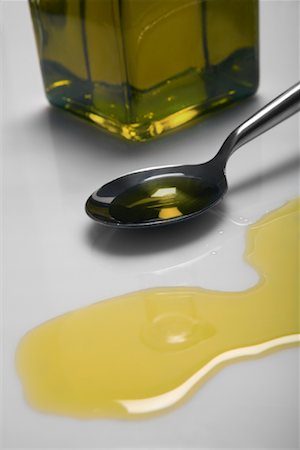You may have a cooking oil spill but maybe you've wondered if you are right in managing the leaks that happen when you run a company or work in a kitchen where you are always using cooking oils. Accidents occur, but there must be no harmful and trouble-filled efforts to cover them up.
Here's what to do.
How To Handle Cooking Oil In The Kitchen

Step 1: Always prepare a back up
When oil is unintentionally leaked in the kitchen, the very first thing most people need to do is to start washing it up at once. The oil is dangerously hot if cooked oil comes out straight from the pan or the fryer overflows. You're going to want to cool the oil for a little bit, even though it seems unusual.
Step 2: Do a pre-check
You would want to avoid the whole spill area until you've ensured that no one was killed. The chance of slipping even though the oil is cool or cold. Make it clear to everybody in the kitchen in which the oil is spilling, particularly if at the time of the spill they were not there. When the spill involves glass, make sure that everyone wears suitable boots before going back to the kitchen.
Step 3: Get into cleaning
You should start the removal process if the oil is cool to the touch. Thankfully, most of the items you need in your kitchen should already have been or easily purchased. You could even start with collecting some washcloths and start to absorb oil carefully with the towels in a dabbing move. Using a generous sprinkle of baking soda and sand or salt to drink the most if you've got anything you can. Bring the oil collection jar up with a dustpan until you have consumed the oil and disposed of it in a garbage bag. Mix the grateful soap with warmed water and mix with the leftover oil traces after much oil has been washed up. Until resuming activities in the spill area, make sure the floor is completely dry
Step 4: Prevent incoming spills
A lot of oil leaks can be prevented if extra cooking oil in the kitchen is managed properly. If you usually have a large amount of cooking oil available to you, let us recycle it into accessible, environmentally sustainable biodiesel. For your used cooking oil, we have a free, easy-to-use jar and work with you to build a collection plan that works for You. Our technicians will expertly service their grapes on regular schedules to balance your oil usage and all municipal standards if you need assistance to maintain your grape trap safely, without excess grade or with code.
How To Deal With Oil From Floor Tiles

You must clear the oil stain until the leaked oil has been drained from the ground or countertop in order to avoid sticks or slips on a slender surface. If you have leaked oil on a linoleum surface, you will be able to remove the oil tin from the contaminated area with dish soap, baking powder, warm water and a scrubber brush. Until treatment with vinyl floor cleaner, which can be obtained at most food, firmware or drug shops, it is essential to wip the vinyl flooring with hot water. Combine the white vinegar with hot water in a container to extract oil from construction materials for softly changing the paint.
How To Remove Cooking Grease

This guide contains everything that you need to hear about how concrete paths, sidewalks and patios can clean oil. It also develops techniques to manage minor injuries, stubborn spills and major spills of fat.
The most grain spillage on concrete floors is part of this implementation plan, but time is not on your hand. Beton retains spilled cooking oil easily, and you can prepare to wipe up these 5 measures as soon as you can.
Step 1: Pre-clean area
Sweep mud and rubbish away and scrub with a slight hose spray across the contaminated field. Pre-reinforcement allows us to act more effectively on the absorbent matter.
Step 2: Soak the spill
Mound the scabbard over the poultry, tamp it, wait half an hour. A industrial spill absorber or swapping compound may also be used
Step 3: Sweep
Swallow up the sawdust and remove it safely. Make sure to wear protective gloves while you are holding a commercial product. Scrub with a hose the surrounding environment.
Step 4 : Scrub the spill
Fill the powdered washing agent, wet the surrounding surface, and clean the cooking grass with a stiff brosch. Let it completely dry to allow the detergent to emulsify and extract oil.
Step 5: Rinse and Check again
Consume the dried detergent, pull it back and rinse for 24 hours. Any oil to resurface can be double-checked. The cleaning procedure can need to be repeated many times.
How To Clean Small Pills
A bit of spent cooking oil mostly on backyard barbecue can simply be removed. Don't let it lie down or put it into a spot. Act quickly to keep your dedicated housekeeping tasks in the ground.
Cover with baking soda or dry dish detergent for the fresh leak. Carefully add the detergent into the contaminated area and allow the mixture to rest for around half an hour. Pour the warm water over the leak and cement of the cooking oil. Dig deep for a few minutes with a bristle brush. Then do it again with additional hot water if necessary.
How To Clean Oil From Carpet

You will get your floorings back to normal if you have split up vegetable or other cooking oil on your tap by using a detergent soap invented for grate cutting. Start by wiping off your oil with a towel until you no longer get an oil from your towel. Then wipe the area with a clean rag and rubbed with alcohol so that the tin doesn't rub into the carpet. When your tapestry has an alcohol solution, blend 1/4 of your water with a 1/4 tea cubicle soap and add a breadcrumb to the stain, before the whole oil is removed.
Conclusion
Through the instruction on several materials and places such as kitchen , concrete , carpet or some other things . We hope that this review article somehow could give a hand when you’re being struggled with oils.













